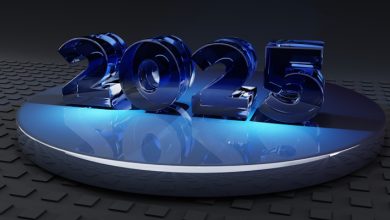What Are DAOs and How Do They Work?

- Understanding Decentralized Autonomous Organizations (DAOs)
- Exploring the Concept of DAOs in the Blockchain Space
- The Inner Workings of DAOs: A Comprehensive Guide
- How DAOs Are Revolutionizing Governance and Decision-Making
- Challenges and Benefits of Implementing DAOs
- Examples of Successful DAOs in Action
Understanding Decentralized Autonomous Organizations (DAOs)
Decentralized Autonomous Organizations (DAOs) are a groundbreaking concept in the world of blockchain technology. DAOs are essentially organizations that operate without a central authority, using smart contracts and blockchain technology to automate decision-making processes.
DAOs are designed to be transparent and secure, with all transactions and actions recorded on the blockchain for anyone to see. This transparency helps build trust among members of the organization and ensures accountability for all decisions made.
One of the key features of DAOs is their ability to operate without a hierarchical structure. Instead of relying on a central authority to make decisions, DAOs use a consensus mechanism to allow all members to have a say in the direction of the organization. This democratic approach to governance sets DAOs apart from traditional organizations and provides a more inclusive and fair system for decision-making.
DAOs can be used for a wide range of purposes, from managing investment funds to governing online communities. By leveraging blockchain technology, DAOs can operate in a secure and efficient manner, reducing the need for intermediaries and streamlining processes.
Overall, DAOs represent a new paradigm in organizational structure, offering a transparent, democratic, and efficient way to manage resources and make decisions. As blockchain technology continues to evolve, DAOs are likely to play an increasingly important role in various industries, revolutionizing the way organizations are structured and operated.
Exploring the Concept of DAOs in the Blockchain Space
DAOs, or Decentralized Autonomous Organizations, are a fascinating concept in the blockchain space. These organizations operate through smart contracts on the blockchain, allowing for decentralized decision-making without the need for a central authority. DAOs are designed to be transparent, secure, and efficient in their operations.
One of the key features of DAOs is their ability to automate decision-making processes through code. This automation eliminates the need for intermediaries and streamlines the governance structure of an organization. Members of a DAO can vote on proposals and make decisions collectively, creating a truly democratic system.
DAOs can be used for a variety of purposes, including crowdfunding, decentralized governance, and even venture capital investing. By leveraging blockchain technology, DAOs can reduce costs, increase transparency, and eliminate the risk of fraud. This makes them an attractive option for organizations looking to operate in a decentralized manner.
While DAOs offer many benefits, they also come with challenges. Security vulnerabilities, regulatory uncertainty, and scalability issues are some of the potential pitfalls of implementing a DAO. It is important for organizations to carefully consider these factors before diving into the world of DAOs.
Overall, DAOs represent an exciting evolution in organizational structure and governance. By exploring the concept of DAOs in the blockchain space, organizations can unlock new possibilities for decentralized decision-making and collaboration. As the technology continues to mature, DAOs are likely to play an increasingly important role in the future of business and governance.
The Inner Workings of DAOs: A Comprehensive Guide
DAOs, or Decentralized Autonomous Organizations, are a revolutionary concept in the world of blockchain technology. These organizations operate through smart contracts on the blockchain, allowing for decentralized decision-making and governance. The inner workings of DAOs involve a complex system of rules and protocols that govern how decisions are made, funds are allocated, and members are rewarded.
One key aspect of DAOs is their use of tokens as a form of voting power. Token holders can vote on proposals and influence the direction of the organization based on the number of tokens they hold. This system ensures that decisions are made by those who have a vested interest in the success of the organization.
Another crucial component of DAOs is their ability to execute smart contracts automatically. Once a proposal is approved through the voting process, the smart contract is triggered, and the agreed-upon action is carried out without the need for human intervention. This automation streamlines the decision-making process and ensures that all members are held accountable.
Overall, the inner workings of DAOs are designed to create a transparent, efficient, and democratic organizational structure. By leveraging blockchain technology and smart contracts, DAOs are able to operate autonomously, providing a new model for decentralized governance in the digital age.
How DAOs Are Revolutionizing Governance and Decision-Making
DAOs are changing the way organizations make decisions and govern themselves. These decentralized autonomous organizations operate through smart contracts on the blockchain, allowing for transparent and efficient decision-making processes. By removing the need for intermediaries and enabling direct participation from members, DAOs are revolutionizing the traditional hierarchical structures of governance.
One of the key benefits of DAOs is their ability to foster a more inclusive and democratic decision-making process. Members of a DAO can propose ideas, vote on proposals, and execute decisions without the need for a central authority. This level of autonomy empowers individuals to have a direct impact on the direction and operations of the organization, leading to increased transparency and accountability.
Another advantage of DAOs is their resilience to censorship and corruption. Because DAOs operate on the blockchain, all transactions and decisions are recorded immutably, making it nearly impossible for bad actors to manipulate or alter the organization’s governance. This level of security and transparency ensures that the decisions made within a DAO are fair and in the best interest of its members.
Overall, DAOs are transforming governance and decision-making by leveraging blockchain technology to create more transparent, inclusive, and secure organizational structures. As the popularity of DAOs continues to grow, we can expect to see them play a significant role in reshaping the way we think about governance and collaboration in the digital age.
Challenges and Benefits of Implementing DAOs
Implementing Decentralized Autonomous Organizations (DAOs) comes with its own set of challenges and benefits. One of the main challenges of DAOs is the potential for security vulnerabilities. Due to their decentralized nature, DAOs are susceptible to hacking and other malicious activities. This poses a significant risk to the funds and assets held within the organization. However, there are ways to mitigate these risks through robust security measures and smart contract audits.
On the other hand, there are several benefits to implementing DAOs. One of the main advantages is the transparency and accountability that DAOs offer. Since DAOs operate on blockchain technology, all transactions and decisions are recorded on a public ledger, making it easy to track and verify. This level of transparency helps to build trust among participants and stakeholders, leading to a more efficient and democratic decision-making process.
Another benefit of DAOs is the elimination of intermediaries. Traditional organizations often rely on intermediaries such as banks, lawyers, and accountants to facilitate transactions and decision-making. DAOs cut out these middlemen, reducing costs and increasing efficiency. This also allows for greater autonomy and control for the participants involved in the organization.
Overall, while there are challenges to overcome when implementing DAOs, the benefits far outweigh the risks. By addressing security concerns and taking advantage of the transparency and efficiency that DAOs offer, organizations can revolutionize the way they operate and collaborate in the digital age.
Examples of Successful DAOs in Action
Some successful examples of DAOs in action include:
– The DAO: One of the first and most well-known DAOs, The DAO raised over $150 million in crowdfunding to fund various projects voted on by token holders. However, it faced a major security breach that led to the loss of a significant amount of funds, highlighting the need for robust security measures in DAOs.
– MakerDAO: MakerDAO is a decentralized autonomous organization that operates on the Ethereum blockchain and issues the stablecoin DAI. It has been successful in maintaining the stability of DAI through a system of collateralized debt positions (CDPs) and governance mechanisms controlled by MKR token holders.
– Moloch DAO: Moloch DAO is a grant-giving DAO focused on funding Ethereum development projects. It has been successful in attracting contributions from various individuals and organizations in the Ethereum community, demonstrating the potential for DAOs to pool resources for the common good.
– Aragon: Aragon is a platform for creating and managing decentralized organizations, including DAOs. It provides tools for governance, fundraising, and decision-making within DAOs, making it easier for individuals and groups to set up and operate their own decentralized organizations.
– DAOstack: DAOstack is a platform that enables the creation and management of DAOs through a system of smart contracts and decentralized governance mechanisms. It has been used to launch various DAOs for different purposes, such as community funding, decision-making, and resource allocation.
Overall, these examples demonstrate the versatility and potential of DAOs in enabling decentralized decision-making, governance, and resource allocation in a wide range of contexts. By leveraging blockchain technology and smart contracts, DAOs have the potential to revolutionize traditional organizational structures and empower communities to collaborate and coordinate in new ways.



